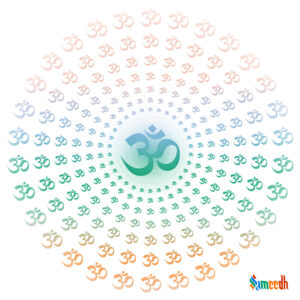“Dharma” is a fundamental concept in Hinduism, encompassing various meanings and interpretations across Hindu mythology, philosophy, and culture. Dharma is often translated as “duty,” “righteousness,” or “law,” but its significance extends beyond these definitions.

In Hindu mythology, Dharm represents the natural order of the universe, encompassing the principles and laws that govern existence. It maintains balance, harmony, and stability in the cosmos, ensuring the smooth functioning of the world.
Dharm encompasses the moral and ethical duties prescribed for individuals based on their roles, responsibilities, and social statuses. It guides human conduct and behavior, emphasizing honesty, integrity, compassion, and respect for others.
Dharm defines one’s obligations and responsibilities towards family, society, community, and the divine. It includes duties such as respecting elders, caring for parents, practicing hospitality, contributing to the welfare of society, and upholding religious rituals and practices.
Dharm also refers to the principles of law, justice, and righteousness. It ensures fairness, equity, and accountability in governance, administration, and legal proceedings. In Hindu mythology, divine beings such as Yama, the god of death, are considered guardians of Dharm and ensure that justice is upheld.
Dharm guides individuals on their spiritual journey towards self-realization and liberation (moksh). It includes practices such as meditation, self-discipline, selflessness, and devotion to the divine. Following one’s Dharma is believed to lead to spiritual growth, inner harmony, and union with the divine.
Hindu epics such as the Ramayan and the Mahabharat illustrate the importance of Dharm through the actions and dilemmas faced by characters. The Bhagavad Gita, a revered scripture within Hinduism, discusses the concept of Dharm extensively, emphasizing the importance of fulfilling one’s duties without attachment to the results.
Dharm is both personal and universal. Personal Dharma refers to individual duties and responsibilities based on factors such as age, gender, occupation, and social status. Universal Dharm encompasses broader ethical principles and values that apply to all beings, transcending individual differences.
Overall, Dharm is a foundational concept in Hindu mythology that encompasses moral, ethical, social, and spiritual dimensions. It serves as a guiding principle for individuals to lead righteous and meaningful lives in harmony with themselves, others, and the cosmos.